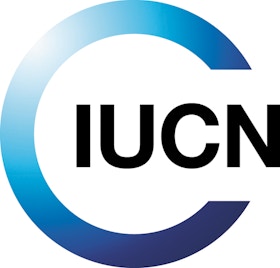The first science-based tool to map, measure, and forecast plastic leakage along a company’s value chain is now available to guide businesses in their efforts to tackle plastic pollution, according to IUCN.
Developed by the Plastic Leak Project (PLP), the new tool is the result of an initiative led by IUCN and EA Quantis, in partnership with 35 public, private and scientific organisations.
“This new tool will allow companies a tool to better products and data-driven strategies to stop plastic pollution,” said Julien Boucher, Director of Ecodesign Center, EA
The PLP tool provides a framework for assessing the release and transfer of plastic into the natural environment. By undertaking a PLP assessment, companies can locate plastic hotspots in their value chain, understand how much leakage is occurring and where, and identify the factors contributing to it.
Corporate decision-makers, sustainability managers, product and packaging designers, and R&D and marketing teams can use the tool to develop plastics strategies, and define priorities and actions to reduce or eliminate their plastic leakage.
Testing the PLP tool in Thailand and Vietnam
In webinars conducted in December 2020 and January 2021, Plastic Leak Project (PLP) Guidelines was presented to 50 business representatives in Thailand and Vietnam.
The webinars provided an overview of the plastic leakage hotspots in the two countries, a detailed presentation of the PLP tool and guidelines, and a case study on how companies could develop a science-based net-zero plastic leakage strategy by applying them. The participants shared their knowledge and challenges and gained a better understanding of how the tool could benefit their companies.
Businesses feedback
A large part of these virtual sessions was dedicated to a plastic knowledge mapping exercise, an action mapping exercise, and a summary of the knowledge gap per type of action and area of the product life cycle impacted.
The knowledge mapping exercise showed that representatives from both countries mainly have knowledge of the plastic life cycle under their control. However, there is still a need and appetite for better data on the other stages of plastic life.
Paradorn Chulajata, Managing Director of Prepack Thailand Co., Ltd., said “Public-Private Partnership for Sustainable Plastic and Waste Management is working with several companies to reduce plastic leakage. However, data and the system are not yet complete to really make a difference in terms of reducing plastic leakage in the environment. Thus, businesses must work together to make the circular economy work.”
“PLP methodology can help companies to identify plastic leakage throughout their value chains and take measures to reduce it. INSEE Ecocycle can offer one of the solutions for companies in Vietnam to reduce plastic waste after the plastic leakage process is conducted: non-recyclable plastic is co-processed in our cement manufacturing process,” said Bruno Fux, Ecocycle & Sustainability Director, INSEE Ecocycle, SCC Vietnam Limited.
These exercises also showed that many of the companies are involved in plastic leakage reduction actions but the level of ambition is often higher than the actual implementation. According to workshop participants, adequate data and metrics are currently missing to better prioritise actions, based on actual impact and efficiency, throughout their value chains.
Next steps
The PLP webinar findings are important in the context of an Extended Producer Responsibility (EPR) policy and regulatory framework in Vietnam and Thailand.
“Measuring impacts and progress towards achieving the EPR targets is imperative for finding a solution to the global plastic pollution problem,” said Gerard Bos, Director of IUCN’s Business and Biodiversity Programme. “The new PLP tool can assist companies in terms of monitoring, reporting and prioritising the most effective interventions to achieve their EPR targets.”
The PLP initiative is funded by Swedish International Development Cooperation Agency (Sida), under the IUCN Marine Plastics and Coastal Communities Project (MARPLASTICCs). IUCN and EA Quantis are encouraging companies to use the PLP tool, and reach out to discuss how to enhance their plastic leakage reduction initiatives. Email: contact@plp.earth
About IUCN
IUCN is a membership Union composed of both government and civil society organisations. It harnesses the experience, resources and reach of its more than 1,400 Member organisations and the input of more than 18,000 experts. This diversity and vast expertise makes IUCN the global authority on the status of the natural world and the measures needed to safeguard it.
Publish your content with EB Publishing
It's about who you reach. Get your news, events, jobs and thought leadership seen by those who matter to you.











